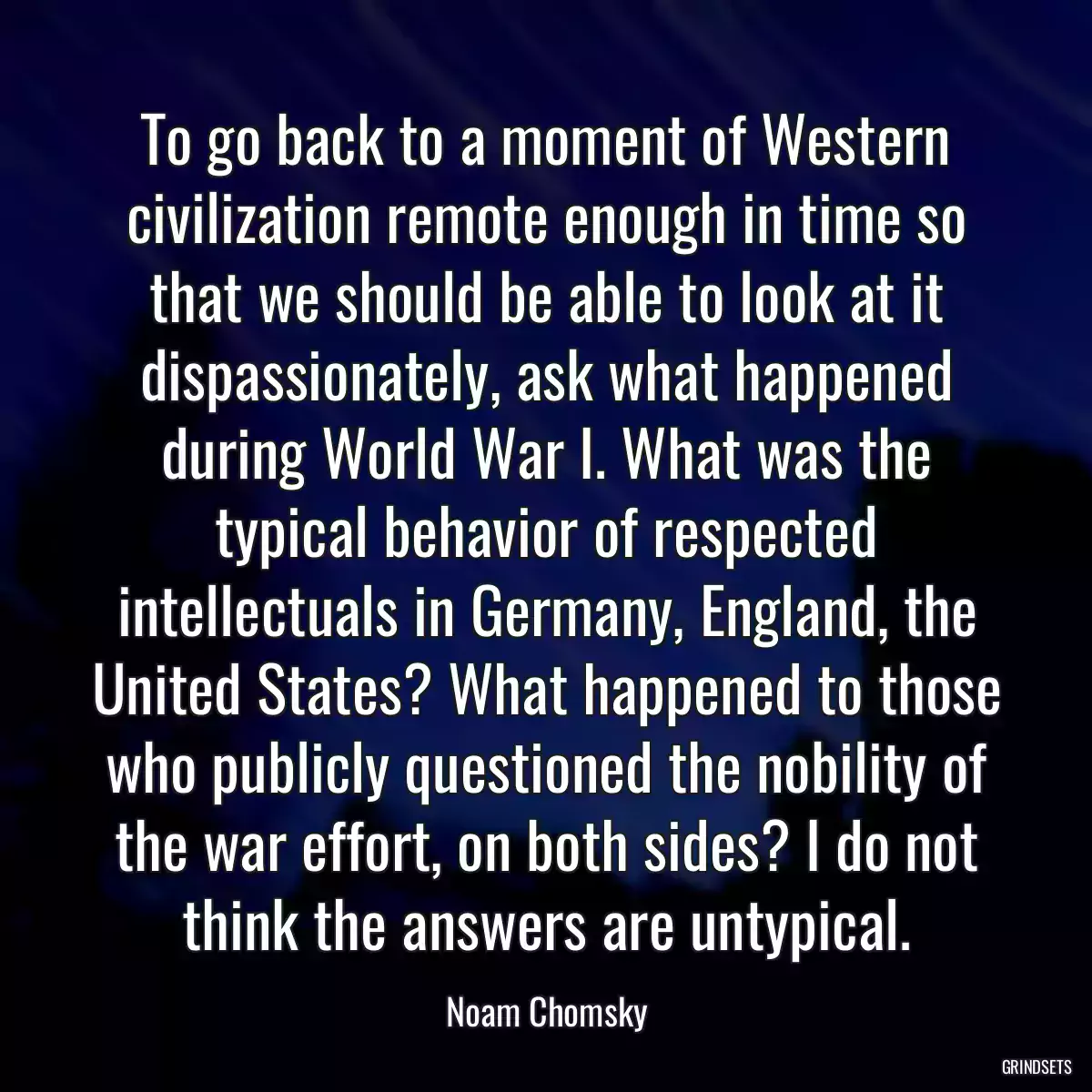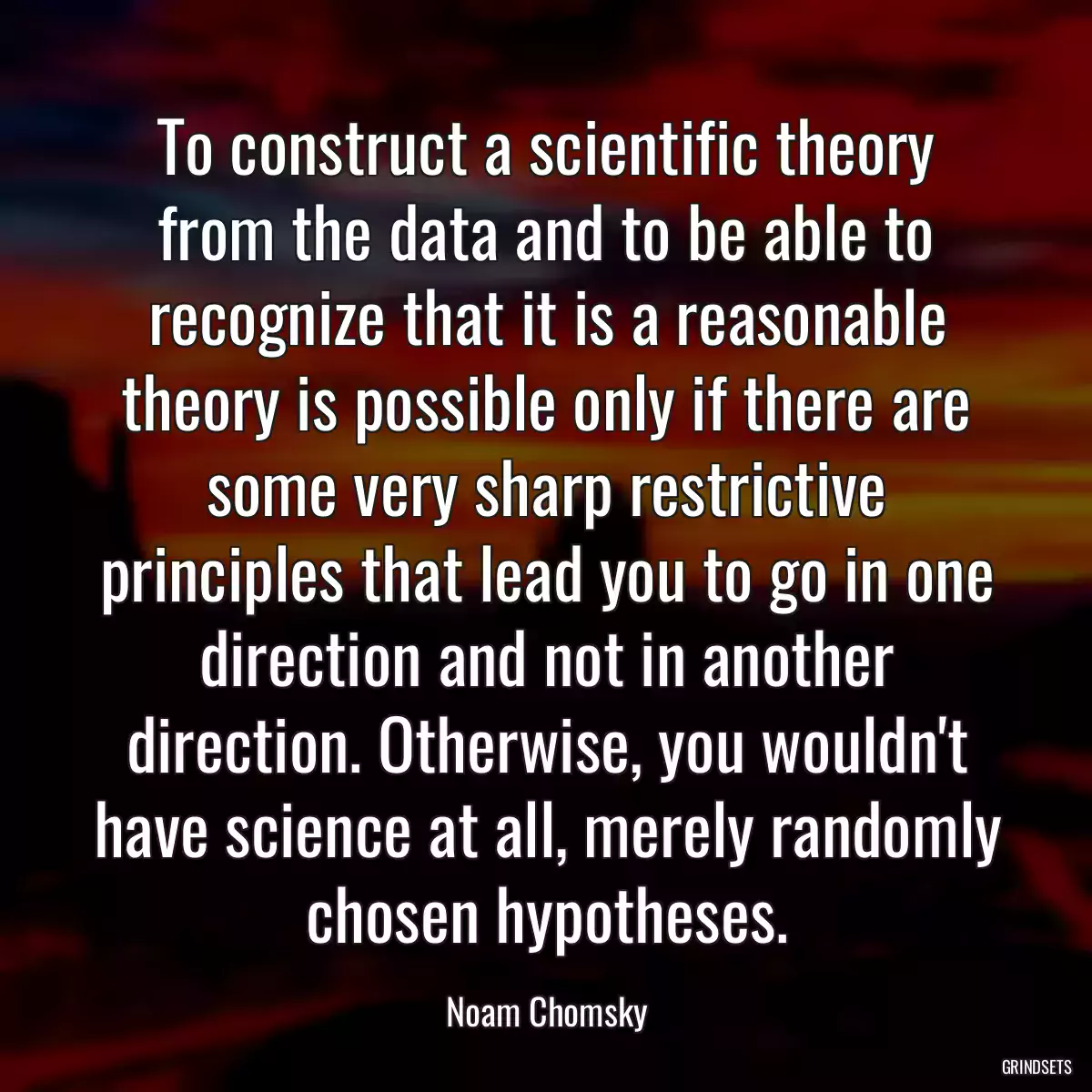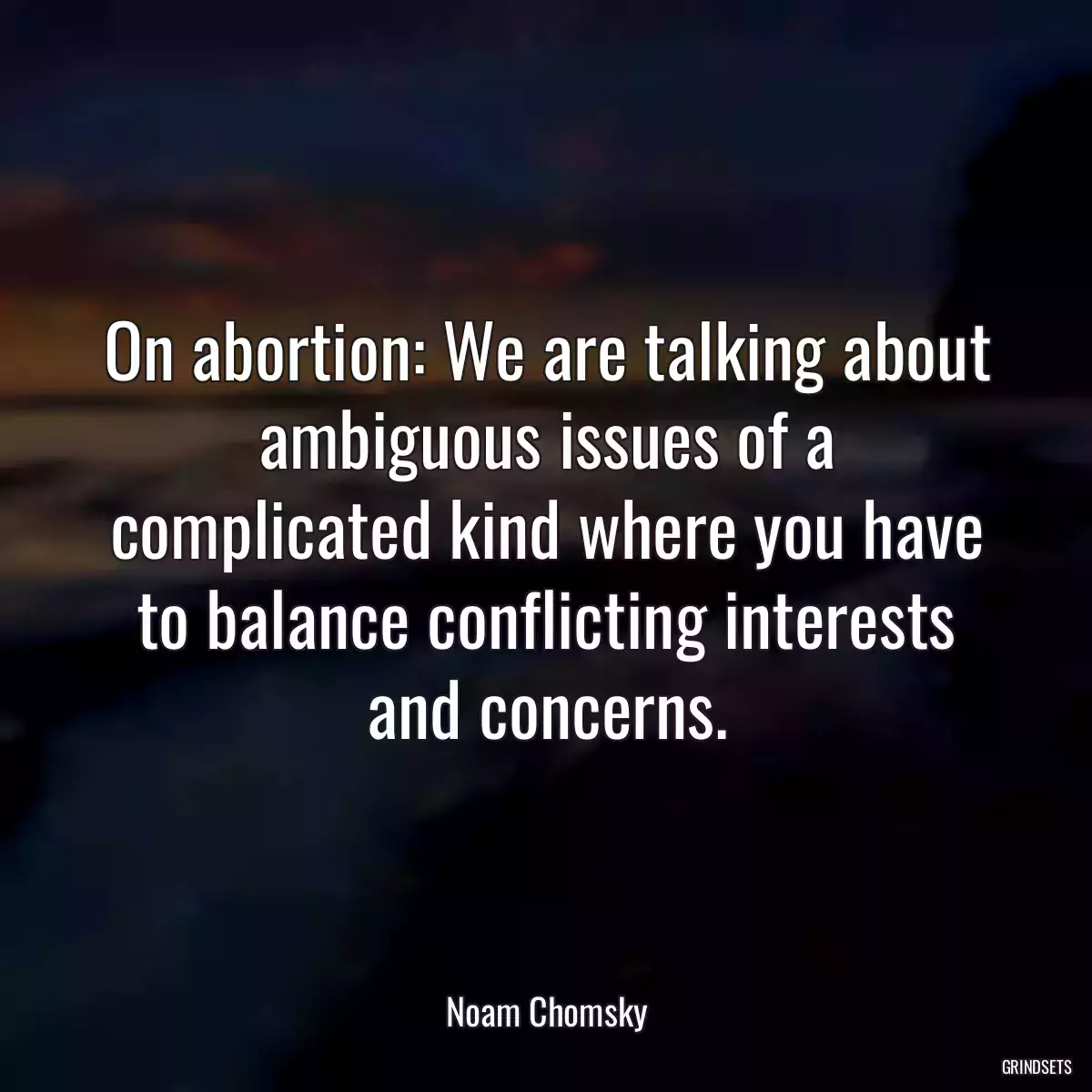
To go back to a moment of Western civilization remote enough in time so that we should be able to look at it dispassionately, ask what happened during World War I. What was the typical behavior of respected intellectuals in Germany, England, the United States? What happened to those who publicly questioned the nobility of the war effort, on both sides? I do not think the answers are untypical.

